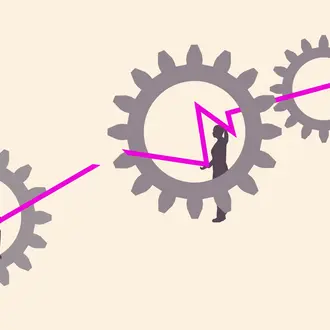Digital Economy
3 insights about the digital economy from a new MIT podcast
Experts talk about the rise of TikTok, the power of social media, and why we should be cautious about artificial intelligence.
“The Digital Insider,” a new podcast hosted by MIT Sloan professor Sinan Aral, is a guide to the science behind the digital economy and the latest trends in business and society.
Each episode features Aral, director of the MIT Initiative on the Digital Economy, in conversation with experts about everything from artificial intelligence and Web3 to social media and the information war in Ukraine.
In the first five episodes of the series, industry insiders indicated they are following these trends, among others:
The rise of TikTok
During a wide-ranging discussion, Scott Galloway, a New York University professor, author, and podcast host, said TikTok is surpassing Netflix and other social media.
“What Netflix did to movie theaters and the media industry, TikTok is doing to Netflix,” Galloway said. (Netflix lost almost a million users between April and July.) Users spent 9 trillion minutes on Netflix last year, he said, compared to 22 trillion minutes on TikTok. In addition, about 55% of TikTok users upload content, creating a free talent pool.
“TikTok is the media company of the world right now,” he said. “People don’t realize how powerful it is. There’s a lot going on here, but I think streaming is being disrupted by TikTok.”
Tempered expectations about artificial intelligence
Gary Marcus, a scientist, author, and founder of Robust.AI, called for a shift in how people think about artificial intelligence.
“I think the biggest risk right now to humanity is that we will put more and more power in these systems that are not artificial general intelligence and are not reliable,” Marcus said.
People want to use new technology, he said, but there are bias, safety, and misinformation risks in scaling up these programs when they aren’t reliable. “My immediate concern is not, are robots going to take over the world — which they are certainly not going to do now — but are we going to use the tools that we have wisely. And my bet is no, and there are going to be some serious costs with that.”
The power — and danger — of social media
Nobel Peace prize laureate Maria Ressa, the founder of Rappler.com, has faced jail time as she’s exposed human rights abuses by former Philippine president Rodrigo Duterte. In May, Ferdinand Marcos Jr., the son of a former dictator, was elected the country’s new president.
“We’ve fallen off the abyss,” Ressa said, pointing to two “extremely worrying” trends that operate in tandem. The first is social media platforms, which have been like “a bomb exploding in our information ecosystem,” she said.
The second trend is what Ressa called “nostalgia for authoritarian rule.” During periods of change, populist leaders use demographic changes for an “us vs. them” type leadership, she said.
“You had this go hand in hand with this information ecosystem that actually prioritized lies, anger, and hate over facts and thinking slow,” she said.
Related Articles
Frances Haugen, a data engineer and scientist, called for more accountability and transparency in social media. A former product manager at Facebook, she became a whistleblower when she left the company in 2021 and shared internal documents with the Wall Street Journal.
Social media algorithms concentrate harms, Haugen said — especially for teenagers, who have a higher rate of problematic use of social media.
“If you have a vulnerability, if you have a rabbit hole you go down, they suck you towards that spot. Because the algorithms don’t have context. They don’t know if the topic is good for you or bad for you. All they know is some topics really draw people in,” she said.
Haugen’s proposed solutions include banning targeted ads for children under 16 and flattening ad rates. Right now, ads are priced partly on performance, so polarizing, divisive ads that get attention are cheaper than ads that advocate for compassion. “We have to remove the subsidy for extremism, the subsidy for polarization,” she said.
Read next: Nobel Peace Prize winner on fighting ‘Virus of Lies’




